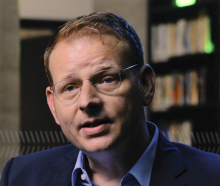International Workshop “Borders as Border Complexities”
Over 40 border researchers accepted the UniGR Center for Border Studies' invitation to come to the University of Luxembourg for an international workshop. The event held on December 5th and 6th, 2019 was dedicated to an emerging development in border research and was a prelude to the two-year workshop series entitled “Border Complexities.”
The basis for the research is the finding that borders can be defined less and less by clear separating forces created by only a few actors or on the territorial periphery of national societies. In advanced border research, they are rather understood as results and crystallization points of multi-layered formations that result from the interaction of various actors, activities, bodies, objects, and knowledge. Such relational constellations, from which effects of border stabilization or destabilization arise, were discussed by the participants as “border complexities.” The goal was to develop a shared understanding of the more complex perspective on and analysis of borders.
Christian Wille (University of Luxembourg) began the first day by introducing key analytical trends in border research and presenting the outlines of a complexity shift in detail. Chiara Brambilla (University of Bergamo) delved deeper into the complexity perspective with fundamental considerations on the concept of complexity as well as with the concepts of Borderscapes and Bordertextures. Anne-Laure Amilhat Szary (Université Grenoble Alpes) then discussed the potential of the Borderities concept and, in addition to increasing multiperspectivity, advocated for the use of immersive methods. Finally, Dominik Gerst (University of Duisburg-Essen) demonstrated, using analytical examples of various forms of border complexities, suitable analytical principles that have been developed, and warned of a methodological complexism in border research.
On the second day, Norbert Cyrus (European University Viadrina) introduced the view of national borders as complex arrangements and showed how impulses from complexity theories can be made productive in border research. Then Astrid M. Fellner (Saarland University) gave insights into the application of the complexity approach with an analysis of the US-Canadian border, which was based on the technique of bordertexturing. Finally, Cécile Chamayou-Kuhn (University of Lorraine) also illustrated the potential of complexity-oriented border research by linking and deconstructing legal and literary perspectives using the example of migrant literature.
The workshop succeeded in further elaborating on the concept of complexity in connection with questions of border research, taking complexity-oriented concepts into consideration, discussing methodological questions, and dedicating itself to the practical application of the complexity perspective. The workshop showed that the examination of border complexities is just in the beginning stage and raised questions that are to be systematized and dealt with in the future.
The kick-off workshop was funded by the Faculty of Language and Literature, Humanities, Arts and Education (University of Luxembourg), the UniGR Center for Border Studies (University of Luxembourg), and the University of the Greater Region (University of Luxembourg).
Background Information
The two-year workshop series Border Complexities is carried out by five partners from Germany, France, and Luxembourg with financial support from the Franco-German University. The partners include the UniGR Center for Border Studies with its partner universities in Luxembourg and Lorraine, the European Universities of Flensburg and Viadrina Frankfurt (Oder) and the School for Advanced Studies in the Social Sciences in Paris.
More information at www.bordercomplexities.org
Video
Photos
Contact:

